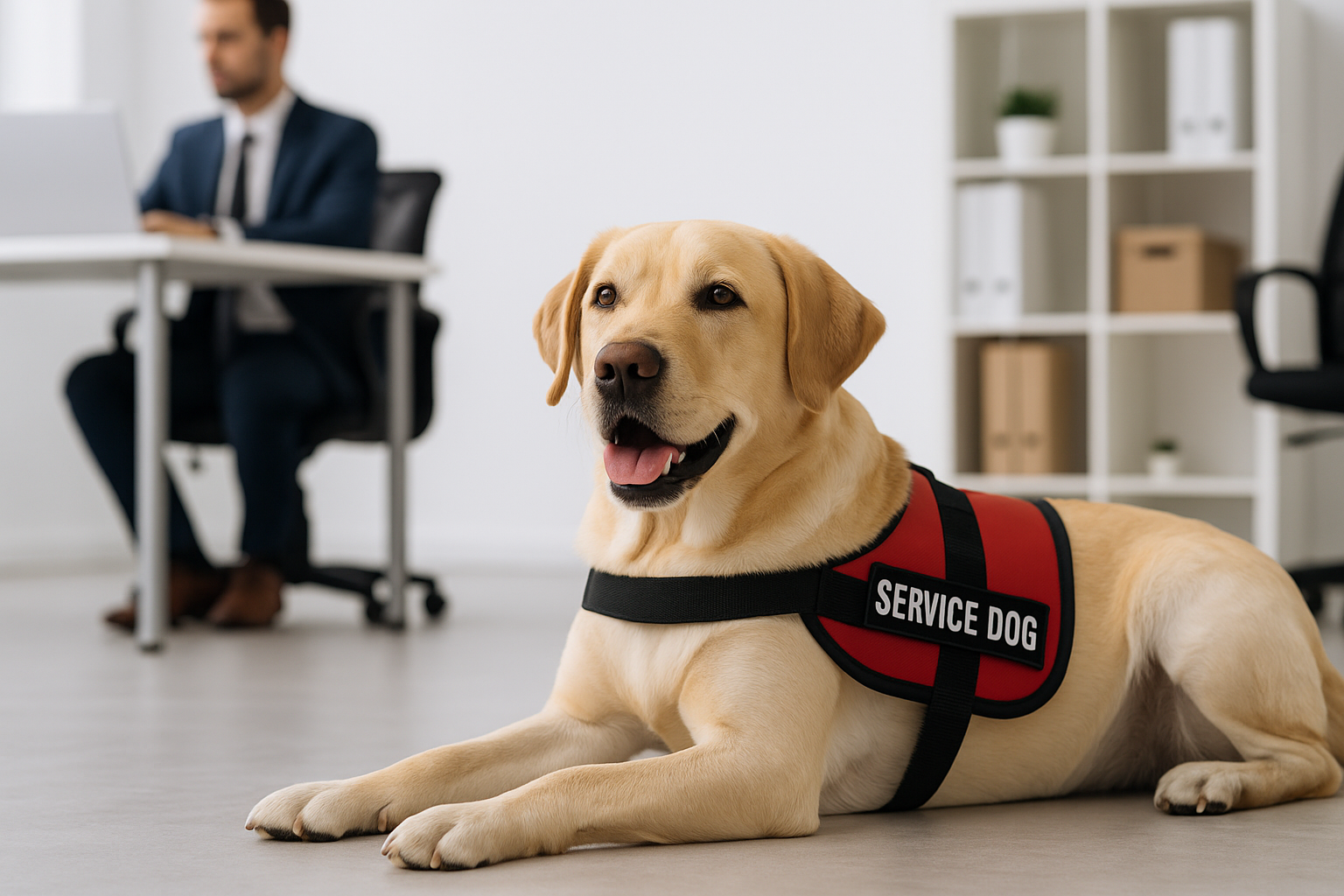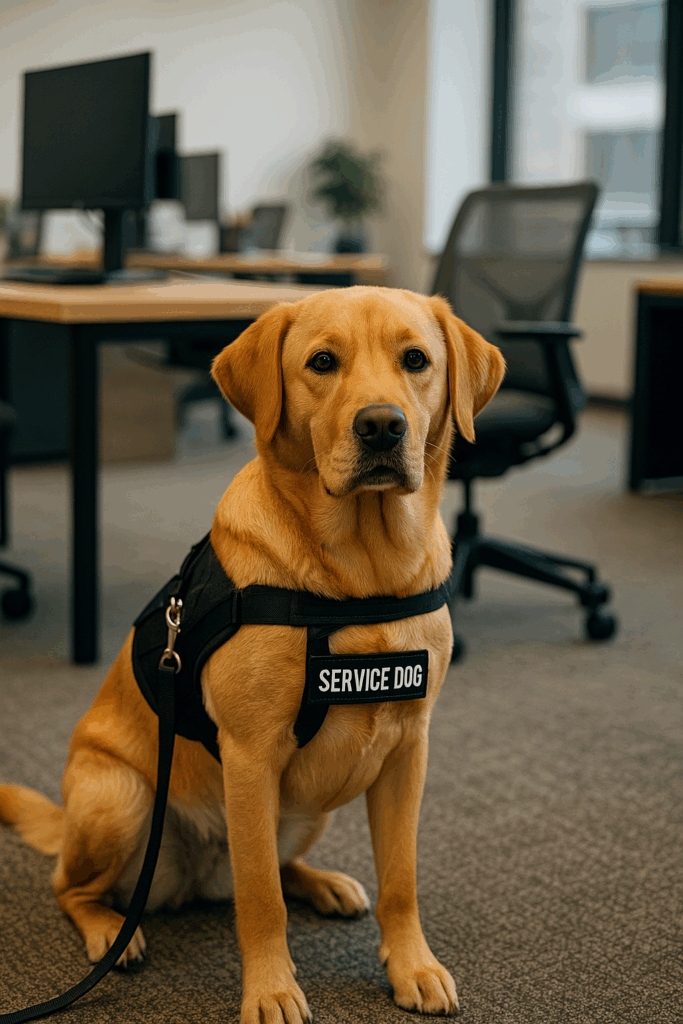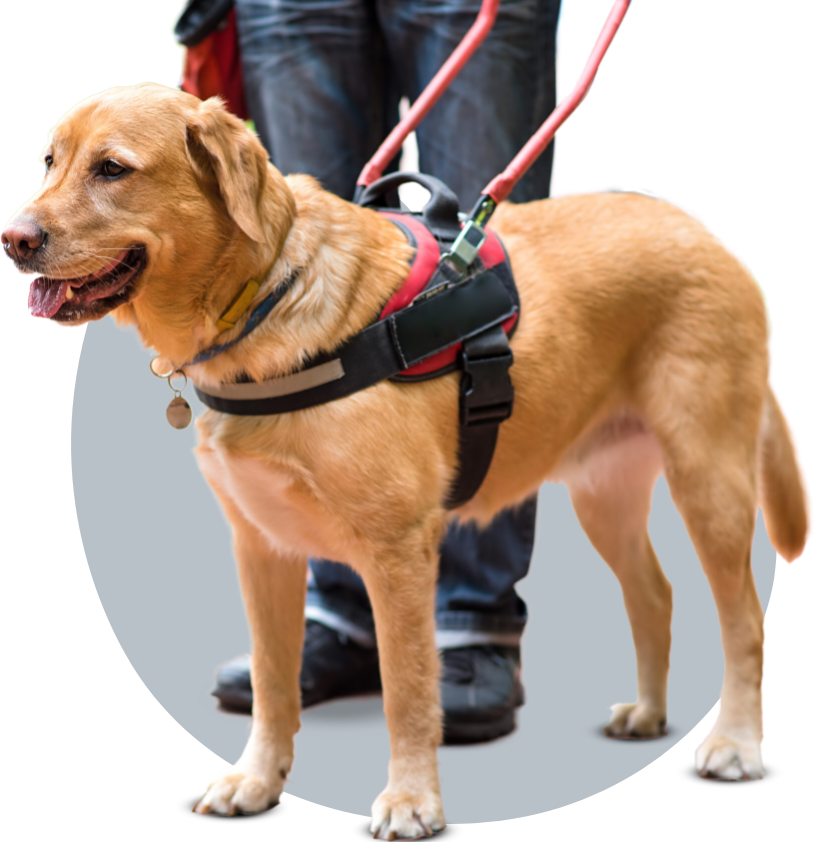Why Service Dogs Are Heroes in the Workplace

Introduction: A New Kind of Coworker
Imagine a workplace where loyalty, focus, and compassion walk on four legs. Service dogs are more than companions — they’re dedicated assistants helping individuals with disabilities lead full and productive professional lives. As society shifts toward greater inclusivity and mental health awareness, service dogs are proving to be unsung heroes in offices, retail stores, hospitals, schools, and remote setups.
In this comprehensive guide, we’ll explore the remarkable impact of service dogs in the workplace, their legal rights, the benefits they bring to employees and employers, and how organizations can accommodate these working animals with grace and confidence.
What Is a Service Dog?
Service dogs are specially trained to perform specific tasks that mitigate their handler’s disability. These can include physical, sensory, psychiatric, intellectual, or other mental disabilities. Unlike emotional support animals or therapy dogs, service dogs are granted access to most public spaces under the Americans with Disabilities Act (ADA).
Key Traits of a Service Dog:
- Individually trained to perform tasks
- Under control of their handler at all times
- Focused and non-disruptive in public settings
Legal Rights and Protections for Service Dogs in the Workplace
Understanding the legal framework is crucial for both employers and employees. Here’s what you need to know:
Americans with Disabilities Act (ADA)
- Employers with 15+ employees must provide reasonable accommodations to individuals with disabilities, including allowing service dogs in the workplace.
- The ADA defines service animals as dogs trained to perform tasks directly related to a disability.
- Employers can ask only two questions:
- Is the dog required because of a disability?
- What work or task has the dog been trained to perform?
Other Relevant Laws:
- Section 504 of the Rehabilitation Act: Applies to organizations receiving federal funds.
- State Laws: Many states have additional protections for service animals that mirror or expand upon federal rights.
How Service Dogs Support Employees in the Workplace
Service dogs are more than aides — they are workplace enhancers. Their presence allows employees with disabilities to participate fully and confidently.
Examples of Service Dog Tasks in the Workplace:
- Retrieving dropped items or opening doors for mobility-impaired individuals
- Alerting handlers to oncoming seizures or low blood sugar
- Guiding individuals who are blind or visually impaired
- Providing deep pressure therapy during anxiety attacks
- Interrupting self-harming behaviors in those with PTSD
Workplace Benefits of Service Dogs
For Employees:
- Greater independence and confidence
- Reduced anxiety and panic attacks
- Increased safety and mobility
- Decreased reliance on human coworkers for assistance
For Employers:
- Improved retention of skilled employees with disabilities
- Enhanced workplace diversity and inclusion
- Boost in team morale and emotional wellness

Implementing Service Dog Accommodations: Tips for Employers
Creating a service dog-friendly workplace starts with knowledge and planning. Here’s how:
1. Review and Update Policies
- Ensure your non-discrimination and accommodation policies include service animals.
2. Communicate Effectively
- Educate staff about service dogs and confidentiality laws.
3. Respect Boundaries
- Train employees not to distract service dogs while they’re working.
4. Accommodate Workspaces
- Make minor adjustments like ensuring a dog can lie safely beside a desk.
5. Plan for Allergies or Phobias
- Use creative solutions like seating changes or air purifiers.
Real-Life Case Studies
Case Study 1: PTSD Support at a Law Firm
A decorated military veteran with PTSD was able to return to legal practice thanks to his service dog, who provides redirection during high-stress court sessions. The firm’s accommodations helped normalize mental health support and inspired others to open up about their own challenges.
Case Study 2: Mobility Assistance in Retail
A retail employee with multiple sclerosis relies on her Labrador to help her navigate the floor and pick up merchandise. Since her onboarding, customer feedback has praised the store’s commitment to inclusivity.
Frequently Asked Questions (FAQs)
Q1: Can service dogs be denied in the workplace?
Only under very limited circumstances, such as if the dog is out of control or poses a direct threat that cannot be mitigated.
Q2: Are emotional support animals covered under the ADA?
No, only service dogs trained to perform specific tasks are covered in workplace settings under the ADA.
Q3: What if another employee has an allergy?
This is handled as a competing accommodation; creative solutions like separate areas or filters can often resolve the issue.
Q4: Do service dogs need certification?
The ADA does not require service dogs to be professionally certified, though documentation from a healthcare provider may support accommodation requests.
Practical Tips for Employees Working with a Service Dog
- Maintain training and discipline to ensure your dog behaves professionally
- Keep your animal clean and well-groomed
- Bring a dog bed or mat to keep your dog comfortable during work hours
- Be proactive in communication with HR and supervisors
Final Thoughts: Embracing Service Dog Inclusion
Service dogs embody resilience, purpose, and partnership. As workplaces evolve to embrace diversity and inclusion, service dogs represent an opportunity to lead with empathy and action. By supporting employees with service dogs, employers aren’t just checking boxes—they’re fostering a more accessible, compassionate, and productive workplace culture.
Conclusion
Interested in learning how to qualify for a service dog or helping your workplace become more inclusive?
? Register Your Service Dog or Learn About Letters from Licensed Clinicians

















































































